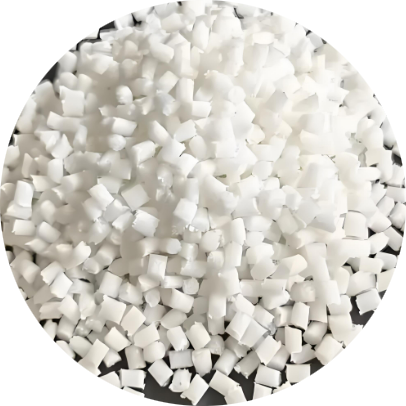Time to read: 6 min

In the realm of prototyping and manufacturing, selecting the right material is crucial for the success of a project. Delrin and nylon are two top contenders known for their durability and versatility. This comprehensive guide compares these two materials, highlighting their properties, advantages, and ideal applications.
Understanding Delrin and Nylon
Delrin and nylon are both thermoplastic polymers with unique properties that make them suitable for a wide range of applications. Delrin, made from polyoxymethylene, is recognized for its dimensional stability and low moisture absorption, while nylon, a synthetic polyamide, is known for its high tensile strength and resistance to wear.
Key Differences Between Delrin and Nylon
- Wear Resistance: Nylon generally outperforms Delrin in abrasion resistance, especially in dry conditions.
- Friction Coefficient: Both materials exhibit low friction, making them ideal for sliding and moving parts.
- Tensile Strength: Nylon boasts a higher tensile strength of 12,000 psi compared to Delrin's 10,000 psi.
- Machinability: Delrin is often regarded as the most machinable plastic, offering ease of processing and excellent dimensional stability.
- 3D Printing Capability: Nylon is more suitable for 3D printing, while Delrin can be more challenging.
- Temperature Tolerance: Nylon has better temperature tolerance than Delrin.
- Moisture Resistance: Delrin absorbs significantly less moisture than nylon, offering higher moisture resistance.
Delrin: Properties and Applications
Delrin, or polyoxymethylene (POM), is known for its high crystalline composition and intrinsic opacity. It is favored for precision parts requiring structural integrity and low friction.
- Delrin Grades: Delrin 150, Delrin AF 100, 30% Glass Filled Delrin, and Delrin AF DE588 each offer unique properties for specific applications.
- Advantages: Delrin's advantages include low weight, high strength, incredible machinability, low friction, and resistance to moisture and chemicals.
Nylon: Properties and Applications
Nylon, a synthetic polyamide, is appreciated for its toughness, thermal and chemical resistance, and ability to absorb moisture.
- Nylon Grades: Common nylon grades include Nylon 6, Nylon 6,6, and Nylon 12, each with distinct properties and applications.
- Advantages: Nylon's benefits include strength and durability, lightweight properties, relative waterproofness, and ease of fabrication.
Choosing Between Delrin and Nylon
The choice between Delrin and nylon depends on the specific requirements of your project. Delrin is preferred for applications in moist environments and where dimensional stability is crucial. Nylon, with its higher tensile strength and temperature tolerance, is suitable for 3D printing and high-stress environments.
Conclusion
Delrin and nylon offer distinct advantages for various manufacturing applications. Understanding their properties and selecting the appropriate material can significantly impact the performance and longevity of the final product.
Unofactory provides expert guidance and top-notch manufacturing and prototyping services to help you make the best material choice for your project. Upload your design file on our online quotation platform to receive a quick quote and take advantage of our material selection expertise.




